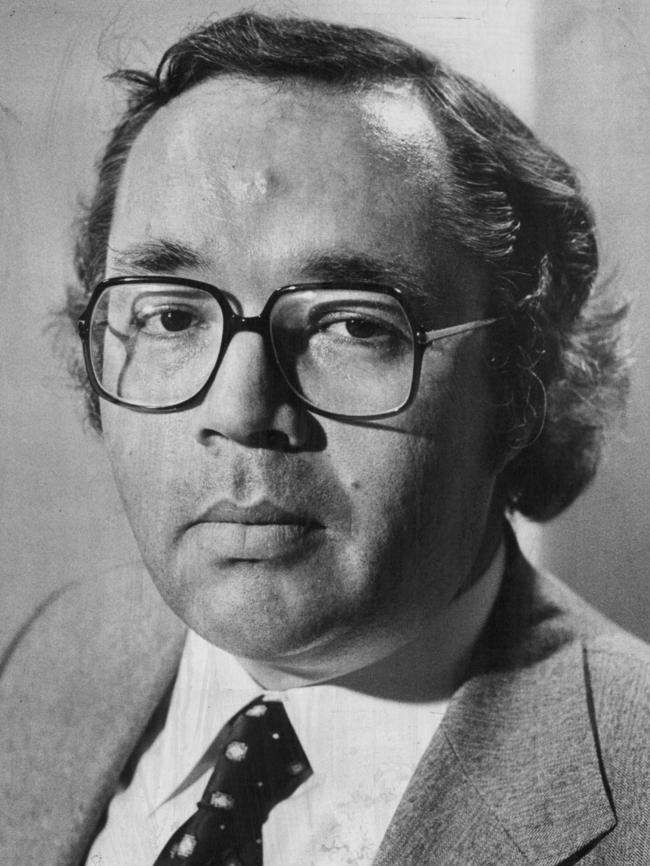We may not see the likes of Laurie Oakes again
LAURIE Oakes’ stock in trade was facts and insight, not feeble loudmouthing, writes Malcolm Farr, and he could change the atmosphere just by turning up.
Rendezview
Don't miss out on the headlines from Rendezview. Followed categories will be added to My News.
PRIME Minister Julia Gillard was set to address the National Press Club in Canberra when it was noticed the Nine network seat at the reporters’ table was empty.
The young journalist nominated by the network was nowhere to be seen.
Suddenly the seat was occupied, not by a tyro but by the unmistakeable bulk of Laurie Oakes.
“Oakes at the Press Club,” marvelled one of the man’s few peers still working, Michelle Grattan. “Something is going to happen.”
In his long career Laurie Oakes has gathered a few grudges and made sure a select number of them did not fade.
And one was against the NPC for offence he took during the 2007 election campaign.
Club management, trying to balance the “clean feed” demands of the various networks covering a campaign debate, had cut The Worm, the device used by Nine to monitor a focus group’s responses to the comments of John Howard and Kevin Rudd.
Oakes vowed never to go to the Press Club again, so his appearance in July, 2010 was a shock. And Grattan was correct.
In the question time after Ms Gillard’s speech he asked her whether she had broken a deal with Mr Rudd, whom she had recently toppled, to give him more time to strengthen his prime ministership?
It was devastating for Ms Gillard and the first substantial sign her predecessor would make political life difficult for her, and eventually remove her.

But it was just one ground-shifting episode in the career of Laurie Oakes, one of the most influential journalists of this and the previous century, who has just announced his retirement.
No other journalist could change the political atmosphere simply by turning up, not the way Oakes could.
At no stage did Oakes say the information wielded that day had come from Mr Rudd. He continues to pride himself on never identifying a source.
It was the same closed-mouth stance he took in 2001 after revealing the confidential warning from then Liberal Party president Shane Stone to Prime Minister Howard that the government was seen as “mean and tricky” by voters.
And nor was it the first removal of a Prime Minister Oakes had covered.
In 1975 he was one of the strongest voices explaining the political maze which led to the dismissal of Labor Prime Minister Gough Whitlam by Governor-general Sir John Kerr.
When the news broke in what is now Old Parliament House he was lunching at the nearby Lobby restaurant. It was remarked that this was the first time many had seen Oakes run, as he raced back to his office.
A big man then as now, he had not been noted for athletic exertion, although in the late 1970s I did witness him winning a playful belly-butting contest against another journalist in the Non members’ Bar.
For 50 years Oakes has carried a love of reporting. He has displayed the best of the craft — the unashamed delight in telling people things they didn’t know but needed to.
And make no mistake, it was genuine and contagious delight, and was based on gathering facts and insight rather than loudmouthing feeble opinion and sloganeering.
He maintained that enthusiasm up until his retirement announcement, even though he wasn’t seen as often on the screen. The Nine network in the Press Gallery did little without running it past Laurie.
And while he is a bloke who occasionally can explode in crankiness, those who have worked with him have remained remarkably loyal.
On Fridays in recent years he would come in to make telephone calls for his Saturday column in News Corp newspapers.
Oakes might have become a national figure via television, but he remains in love with and in awe of the printed word. And his skill in both media was the directness and uncluttered style of a proud tabloid-trained reporter.
Current news and information networks are unlikely to find room for another journalist like Laurie Oakes to grow. And even if there were room, it is unlikely there would be someone like him to fill it.
For 50 years he has been like many of his reports — an exclusive.
Malcolm Farr is the national political editor of news.com.au.
Originally published as We may not see the likes of Laurie Oakes again


